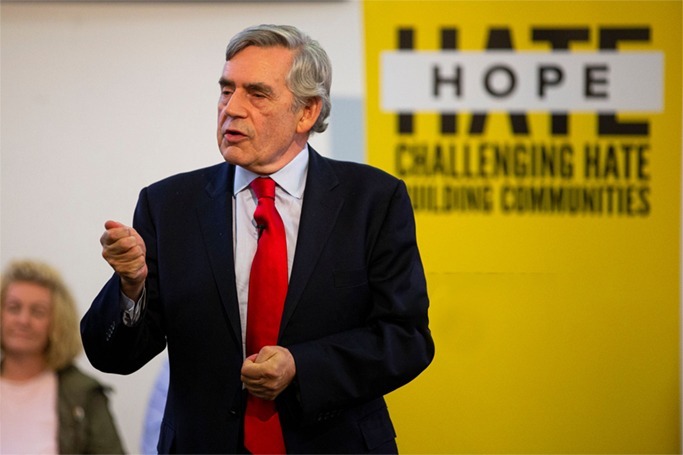Birth
February 20, 1951
Individual Characteristics
Brown was born in Giffnock, Renfrewshire, Scotland, and is the second child of a Scottish priest. He lost his left eye during high school rugby. Opponents of Gordon Brown consider him the worst UK prime minister since World War II and believe his ambitions were far beyond his means. But his supporters consider him one of the greats of his day, a politician who played a role in saving the UK and world economies. To them, he was a man who was sometimes brilliant and joyful, and sometimes anxious and worried.
Political Record
He is the 52nd UK prime minister and held the post of Labour leader from 2007 to 2010. He is currently the UN Special Representative for Global Education. Brown is known as the Iron Treasurer because of his strong economic performance during his 10 years in office. He began his political career at the age of 12 by joining the Scottish Labour Party; at the age of 20, he became one of the region’s leading politicians. A few years later, Brown was elected to the House of Commons as a representative of Dunfermline East (UK Parliament constituency). Tony Blair, who replaced Brown, was Labour leader for 13 years and UK prime minister for 10 years. Brown previously served as Chancellor of the Exchequer in Tony Blair’s cabinet and has been a Member of the UK Parliament since 1983. After 32 years in office, Brown resigned from parliament in 2015 and no longer ran in the elections.
Brown was a proponent of change, and it showed more than anywhere else in his cabinet. Almost all the faces in his cabinet were new. The most prominent new figure in the UK cabinet was David Miliband, an active and young member of the Labour Party who was elected to replace Margaret Beckett, the Foreign Secretary of Tony Blair.
Alistair Darling was named the new Chancellor of the Exchequer and Jacqui Smith the new UK Home Secretary. This was the first time a woman had been appointed Home Secretary. Jack Straw served as Secretary of State for Justice and Des Browne as Secretary of State for Defence.
Above all, his character played a role in his political leadership style. He prevented the pound sterling from being replaced by the euro and played a key role in the global response to the 2012-2007 financial crisis. His other measures include setting a national minimum wage, tax breaks and, of course, years of economic growth, which allowed him to spend billions of pounds on public services.
During his tenure, he prioritised education, health services, the environment, security and economic stability. The two main elements of Brown’s international approach were ethics and economic interests, and these two elements were also the secret to his success during his time as Chancellor of the Exchequer. In his speeches, Brown repeatedly addressed five international issues: globalisation, demographic change, technology, global security, and climate change. He believed that free markets should be promoted and China, India and Russia be made to comply with international trade laws through cooperation.

